































Pluralistic practice is a collaborative, personalised and flexible approach. It puts the client at the centre of a collaborative and engaging relationship, viewing the client as resourceful and full of agency; very much an active partner in the process of change. Read more
The Pluralistic Practice Network (PPN) is a collaborative network run by our members for our members, who are all practitioners with an interest in a pluralistic approach The PPN was set up by Katie Nicol in October 2015, with the support of Professor John McLeod and the counselling department of University of Abertay, Dundee


The network exists both virtually in online spaces, and regular face to face meetings. We also plan to have periodic gatherings of special-interest groups; please let us know if you have any suggestions about this.


 Frankie Brown and Kate Smith
Frankie Brown and Kate Smith
Pluralistic Therapy provides answers to the most important and common questions asked about the origins, principles and practice of pluralism
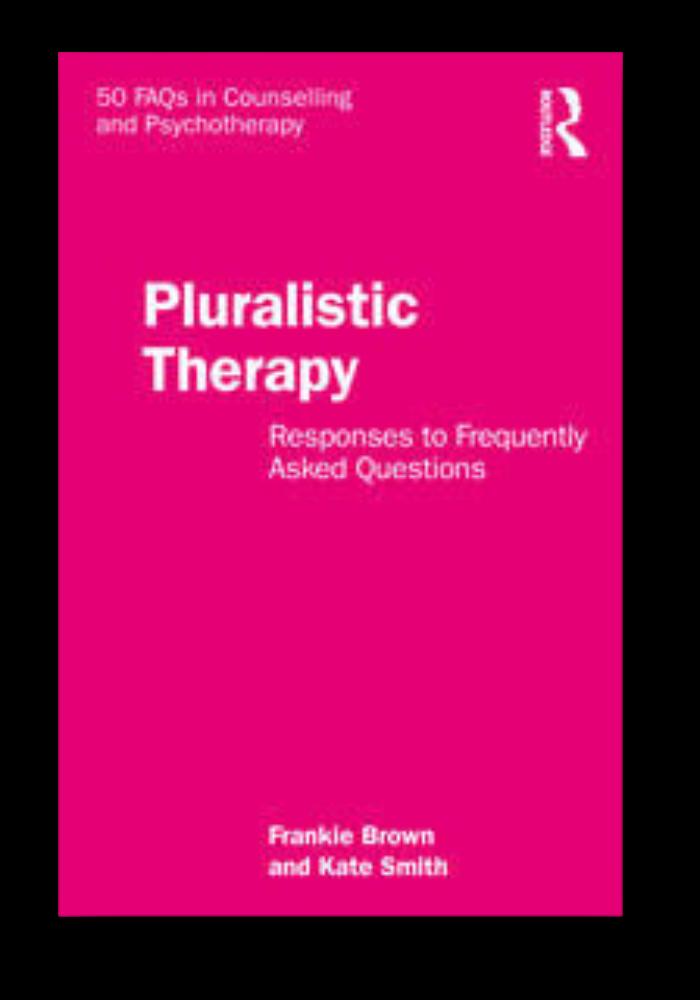


Written in an accessible style by experts in the field, the book provides the reader with a comprehensive understanding of the pluralistic approach in theory and practice, and builds on the contemporary developments in the field The questions cover five areas, including an overview of pluralism, pluralism in practice, client factors, pluralistic developments outside of individual therapy and critical questions about pluralism. The questions also cover some of the key challenges posed to the approach.
This book will appeal to a wide range of audiences, including therapeutic practitioners, researchers, and professionals interested in the application of the approach within mental health contexts. It will also serve to help professionals from non-therapy backgrounds such as mental health services, education, and social care understand the nature of pluralistic work.




Friday2ndJune
6pm - 6:30PM Welcome to ICPCP 2023: Kate Smith & John Wilson
6.30pm – 7.30pm
KEYNOTE: Online Therapy: What we need to know - Kate Smith & Naomi Moller

7.30pm – 7.45pm BREAK
7.45pm – 8.45pm PAPER & WORKSHOP
Saturday 3nd June
8.45pm till late Online Pub to Meet and Socialise with Fellow Delegates.

Saturday3rdJune
9.15am – 9.45am Arrival & Reception – Welcome from Kate Smith & John Wilson
9.45am - 10.00am Pluralistic Practice Journal Launch - Dr Christine Kupfer


10am - 11am
KEYNOTE: Pluralistic Therapeutic Ecosystems of the Future - Terry Hanley & Aaron Sefi
11am - 11.15am BREAK
11.15am - 12.45pm PAPER & WORKSHOP PRESENTATIONS (Multiple Rooms)
12.45pm - 2pm LUNCH
2pm - 3pm PAPER & WORKSHOP PRESENTATIONS (Multiple Rooms)
KEYNOTE: Neurodiversity: What counselling could learn from different ways of being - Sonny Hallett 4pm - 4.15pm BREAK
3pm - 4pm
4.15pm - 5.45pm PAPER & WORKSHOP PRESENTATION
5.45pm – 6pm Plenary



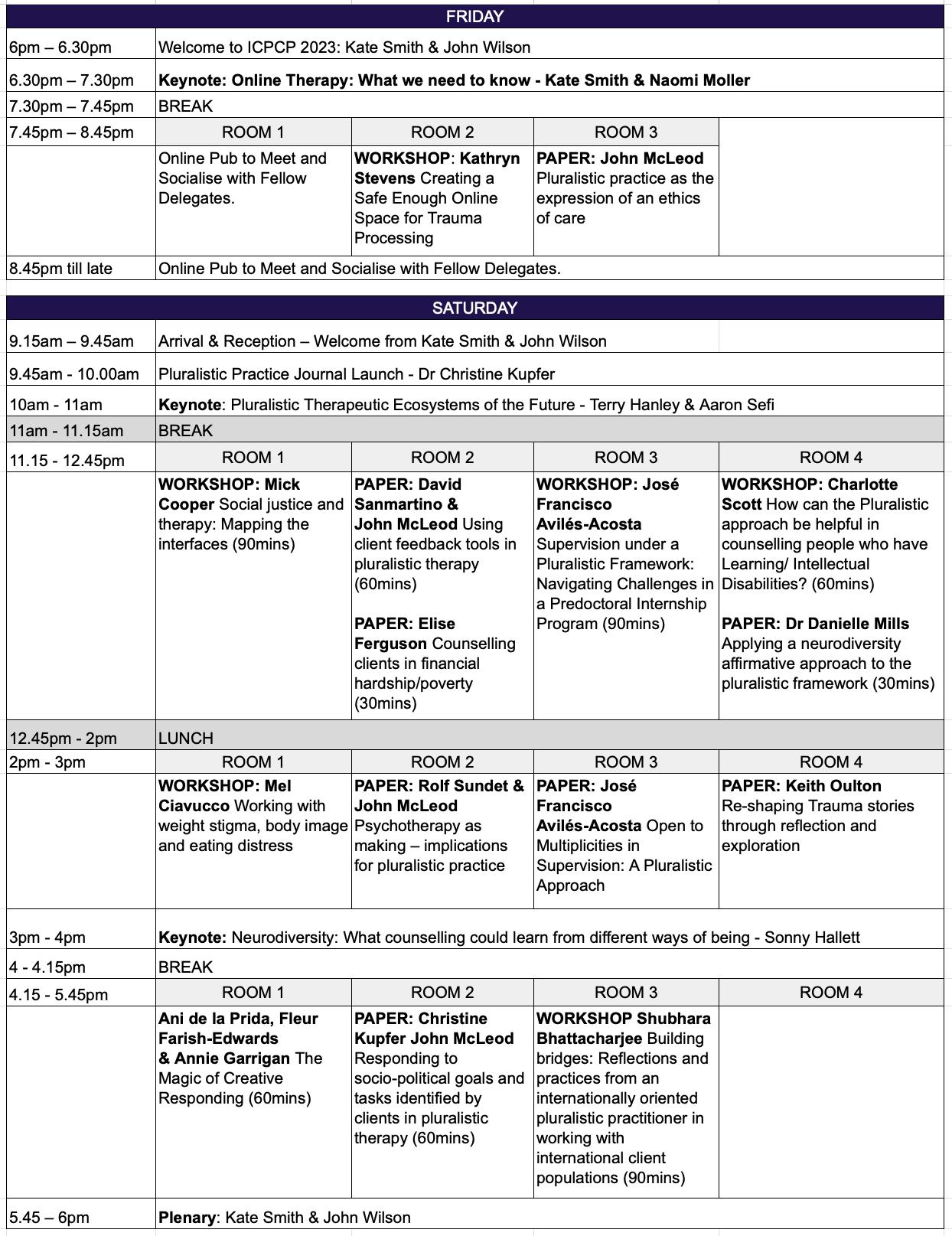






Since the wide-spread movement to online platforms for the delivery of talking therapies in 2020, a reliance on practice ethics and standards has been used to support practitioners in navigating this sometimes unfamiliar modality. Despite the apparent success of online delivery in terms of reach, there remain outstanding questions within the evidence base supporting practice in humanistic therapies.
This keynote will provide an overview of what we know and what remains unexplored, and will provide attendees with the opportunity to reflect on the costs and benefits of online therapy
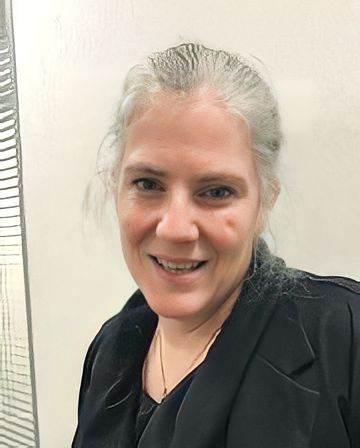


Kate Smith PhD is an academic at Abertay University in Scotland where she oversees the MSc in Pluralistic Therapy and the Tayside Centre for Counselling She has led a number of initiatives within the pluralistic practice community, as well as being the co-author of The Pluralistic Therapy Primer, 50 Frequently Asked Questions in Pluralistic Therapy, and a co-Editor in Chief of the Pluralistic Practice Journal
Naomi Moller is Professor of Psychology and Psychotherapy and Head of Discipline at The Open University Current elected President of the UK Chapter of the Society for Psychotherapy Research, Naomi is a psychotherapy researcher with over 25 years of research engagement, and over 45 published peer-reviewed papers and book chapters, as well as two edited books. During the pandemic she co-authored an online CPD course to support counsellors transitioning to online working which has had over 24,000 users.
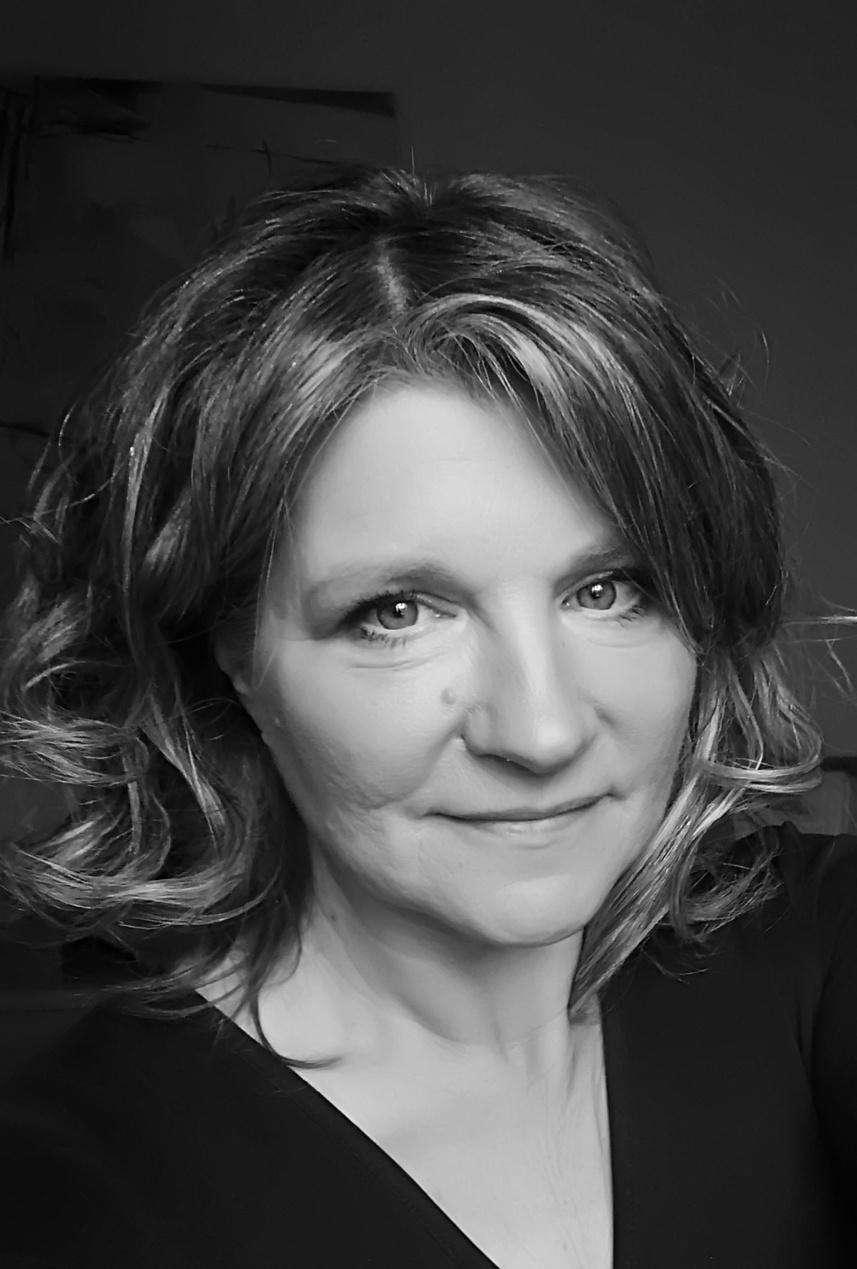

This workshop will present ways of formulating distress from a nervous system perspective. As we rely on our own nervous system to co-regulate clients within an in person setting, we will explore how to create an online space where a client can feel suitability held to process traumatic experiences. We will be focusing on the window of tolerance model, using this with clients and the importance of collaborating on ways to regulate.
We will explore some techniques that help facilitate regulation and explore what has and has not been helpful for some clients. This workshop will be centred around the pluralistic framework, recognising the importance of collaborating with clients in an open, transparent way and ways of finding and building resources to allow safe trauma work online.
I hope this will workshop will facilitate a lot of discussion and sharing of skills among the group
Kat has an MSc in Counselling from Abertay University (2016) and an MA (Hons) in Psychology from Dundee University (2013). In addition to her formal education, Kathryn has pursued further specialist training in various modalities This includes certifications in Eye Movement Desensitization and Reprocessing (EMDR), counselling for drug and alcohol misuse, and Comprehensive Resource Model (CRM) training. She also holds qualifications in Cognitive Behavioural Therapy (CBT), Couple Work, and Trauma Therapy, among others
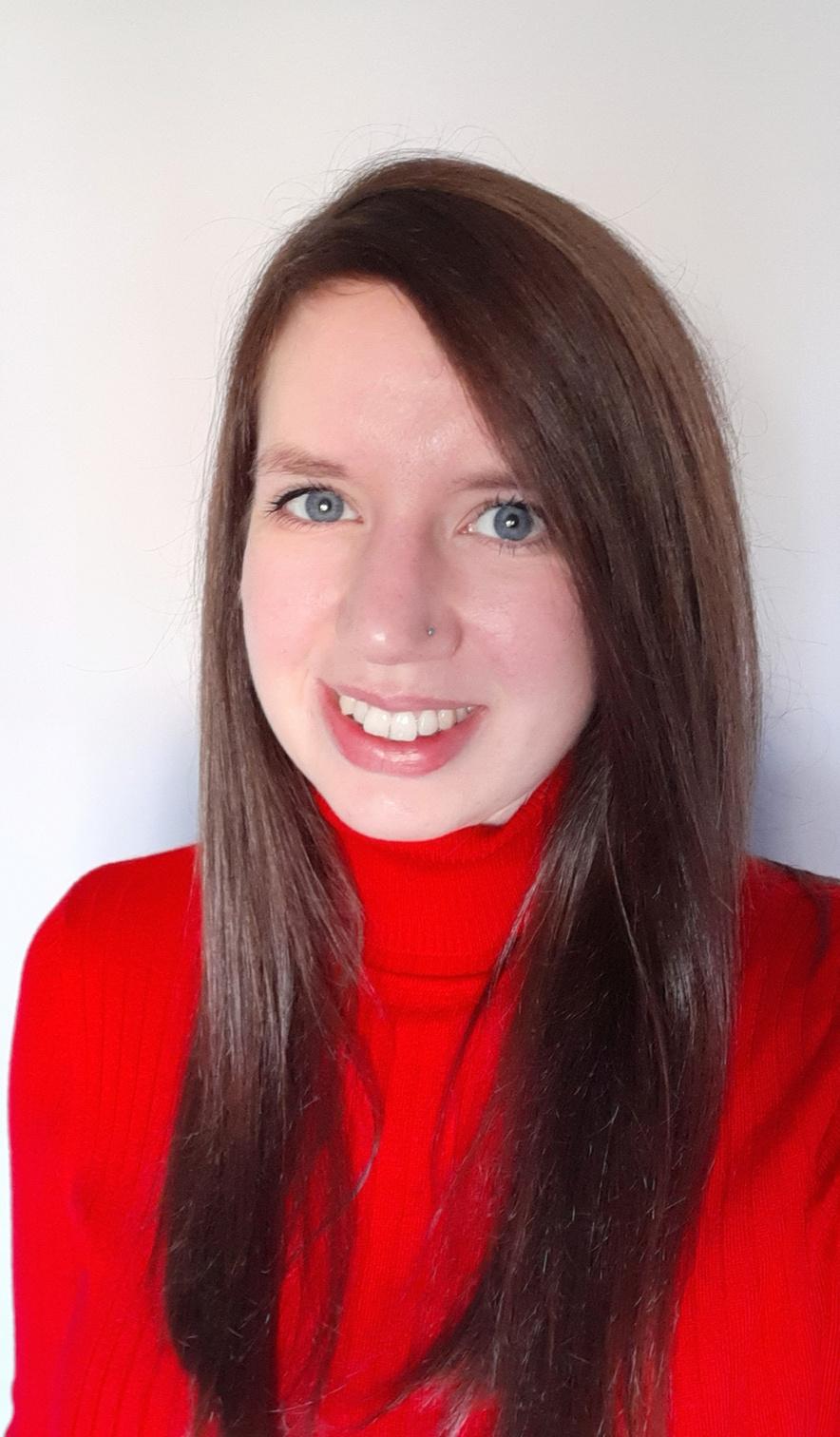
With a diverse range of experience, Kathas had the privilege of working within esteemed organisations such as the NHS, Women's Aid, Tayside Council on Alcohol, and Rape Crisis centres in Scotland. Currently, she divides her time between the charity sector, providing therapy to male survivors of sexual abuse, and lecturing within The Open University In addition, Kathryn operates a thriving private practice offering therapy and supervision.
This presentation will build on Kat’s past presentations and publications within the pluralistic field, and focus on safe trauma recovery online, and what this can look like. The hope is that this presentation will give space for discussion, questions and sharing of expertise between group members


An important aspect of pluralistic practice is open-ness to multiple perspectives around issues, and actively exploring the potential relevance of these different viewpoints for the issue that is being tackled. On many occasions, what emerges is that perspectives that were implicit and unvoiced, or had been taken for granted, turn out to be highly useful. The aim of this presentation is to suggest that active attention to the ethics of care may be highly facilitative for some clients. On the whole, counselling and psychotherapy training and practice tends to view ethics mainly in terms of professional or procedural issues such as confidentiality, informed consent, and boundaries. However, there also exists a much wider field of ethical reflection, around how we define and maintain a good life
The concept and experience of care represents a central aspect of this kind of broader ethical and moral perspective We only survive to adulthood to adulthood because other people have cared for us, our everyday lives are organised around interconnected networks of mutual care, and at times all of us are vulnerable and need to be cared for. However, despite the fundamental human significance of care, this concept has never played a central role in any theory of therapy
The first part of this presentation will offer an overview of many ways that the problems that people bring to therapy can be viewed as arising from interpersonal betrayal and other failures of care. The second part of the presentation will look at how pluralistic practice can be viewed as an active form of solidarity and ethics work that extends an ethics of care into parts of a client’s life (or the community in which they live) where it has been eroded or lost.
A key aim of this presentation is to facilitate discussion: a closing section will focus on group dialogue in which participants are invited to share their responses to what they have heard, ask questions, and collectively explore ways that research and training might enable the further articulation of a care-informed approach to pluralistic counselling and psychotherapy



John McLeod is Visiting Professor of Counselling at the Institute for Integrative Counselling and Psychotherapy, Dublin, and Emeritus Professor, Abertay University He has been closely involved in the development of pluralistic therapy, as well as publishing widely on a wide range of aspects of counselling and psychotherapy research and practice. He lives in Dundee, Scotland.






Kate Smith PhD is an academic at Abertay University in Scotland where she oversees the MSc in Pluralistic Therapy and the Tayside Centre for Counselling She has led a number of initiatives within the pluralistic practice community, as well as being the co-author of The Pluralistic Therapy Primer, 50 Frequently Asked Questions in Pluralistic Therapy, and a co-Editor in Chief of the Pluralistic Practice Journal.
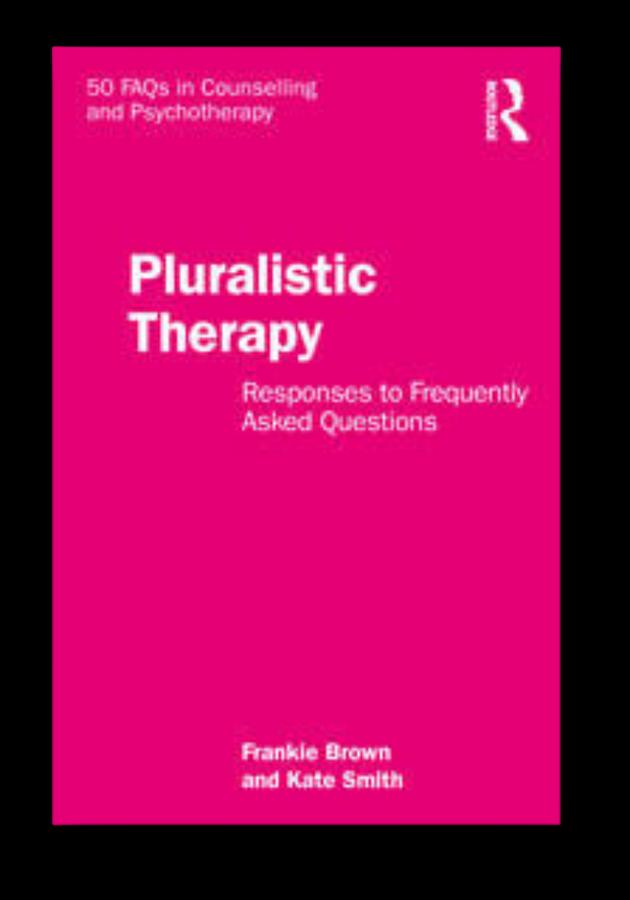



As a practitioner with 20 years’ experience as a counsellor, supervisor & trainer in both the voluntary sector and private practice. She has been involved in the pluralistic network and has recently been part of a team who developed and are presently delivering a COSCA validated Diploma in Pluralistic Counselling & Psychotherapy in several locations throughout Scotland
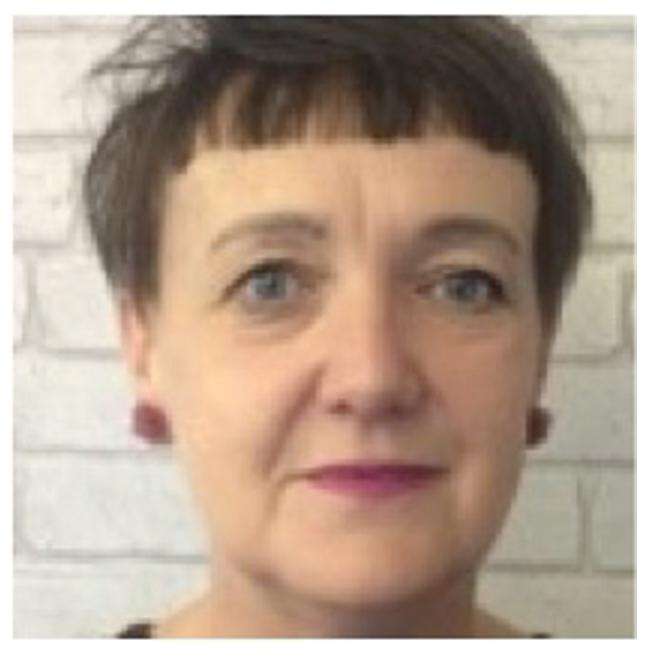

Research interests include children and young people and addiction.


Kat has an MSc in Counselling from Abertay University (2016) and an MA (Hons) in Psychology from Dundee University (2013). In addition to her formal education, Kathryn has pursued further specialist training in various modalities This includes certifications in Eye Movement Desensitization and Reprocessing (EMDR), counselling for drug and alcohol misuse, and Comprehensive Resource Model (CRM) training She also holds qualifications in Cognitive Behavioural Therapy (CBT), Couple Work, and Trauma Therapy, among others.

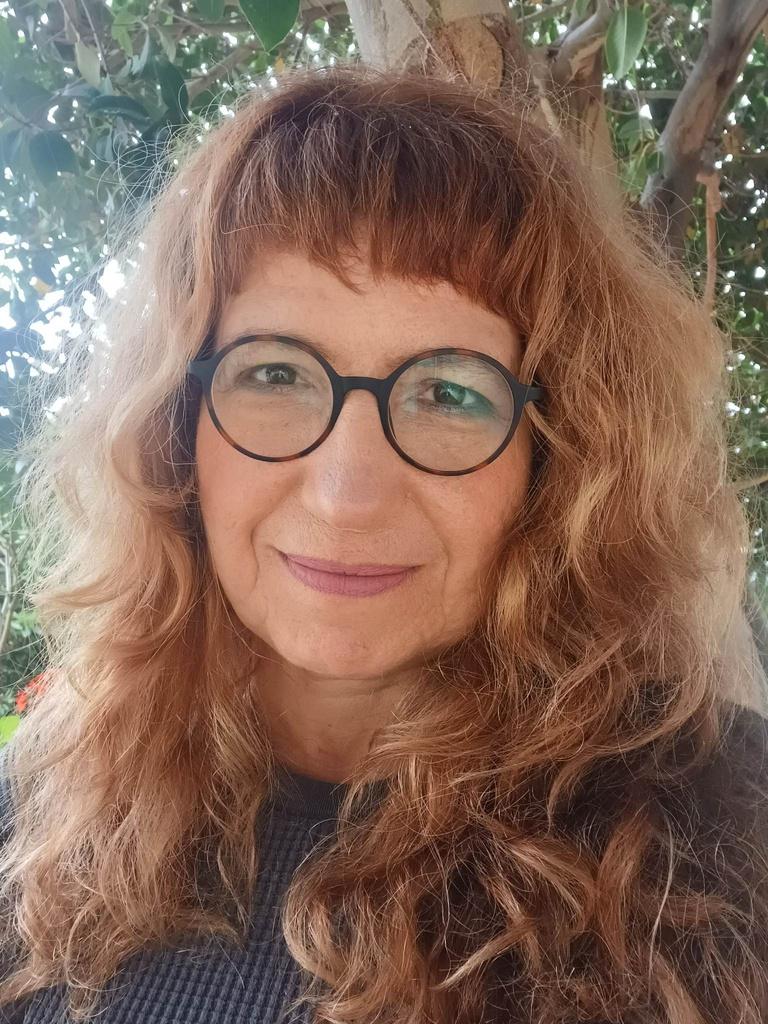





With a diverse range of experience, Kathas had the privilege of working within esteemed organisations such as the NHS, Women's Aid, Tayside Council on Alcohol, and Rape Crisis centres in Scotland. Currently, she divides her time between the charity sector, providing therapy to male survivors of sexual abuse, and lecturing within The Open University. In addition, Kathryn operates a thriving private practice offering therapy and supervision
Sophia has lived and worked in UK for a number of years. She has been an academic teaching and supervising research and has taught a wide range of topics in counselling, psychology and special education She has published a number of research papers. Currently she lives and works in Crete, Greece She is an affiliate researcher at the Institute of Agri-Food and Life Sciences, University Research Centre, Hellenic Mediterranean University (Heraklion, Greece). She has been working for many years in the Union of Women’s Association, an NGO aiming at preventing and combating Gender Based Violence Her research interests are in: trandisciplinary pluralistic research, qualitative research, social justice, gender based violence, supervision and training in counselling and psychotherapy.


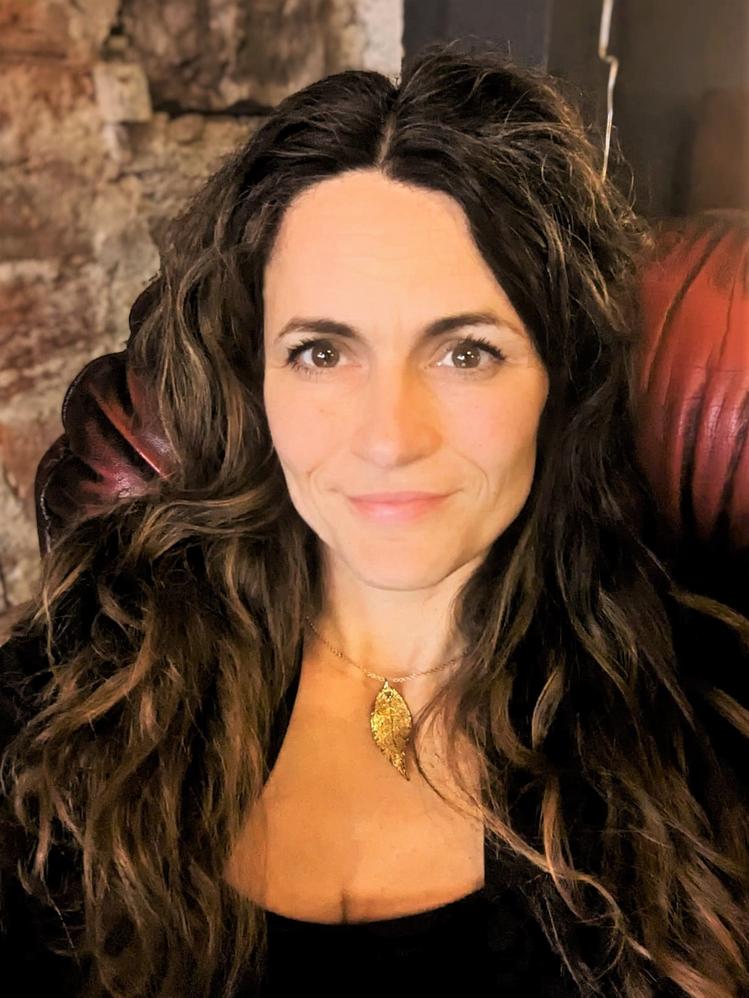
The central focus of the Pluralistic Practice Journal is on developing a critical understanding of the relevance and value of a pluralistic approach to counselling, psychotherapy, recovery, peer self-help, life coaching, career guidance, and other forms of emotional support. The journal also welcomes contributions that discuss pluralistic practice in education, health and social care, faith communities, creative arts, leisure, criminal justice, socio-political activism, and any other professions, disciplines, occupations or areas of work where it might have relevance. A key aim of the journal is to facilitate collaboration, dialogue and learning between and across different professional contexts.
Pluralism is a philosophical position that there are no single truths or certainties. Instead, productive and sustainable ways of living are characterised by an ongoing dialogue between different perspectives Pluralistic practice is concerned with the implications and challenges arising from adopting a pluralistic stance within both everyday life and professional contexts.

How might new technologies change the face of therapy as we know it? Why might pluralistic therapists see themselves at the forefront of such changes? Although we don't have all the answers, we will explore these ideas and speculate on what the future might hold.

We will begin by discussing Kooth, an online therapy and support service for young people that provides a virtual ecosystem of resources, such as therapeutic content, peer forums, and anonymous text-based therapy. We will present research on how users have engaged with this service and made active choices about their care pathways
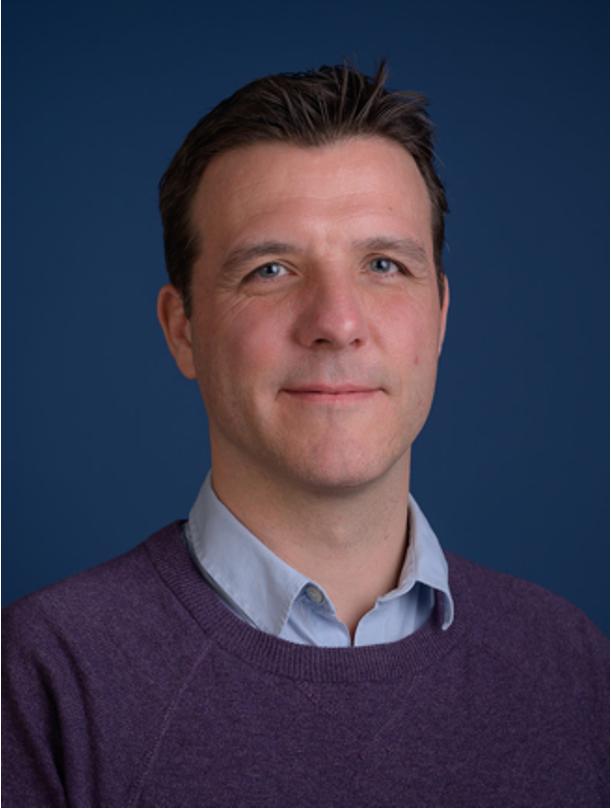

Using this real-world example, we will consider how pluralistic therapists could develop their own ecosystems of support, incorporating both new and traditional technologies. We will introduce the concept of a "therapy bundle," which combines multiple resources with therapeutic work Finally, we will explain why pluralistic therapists are particularly well-suited to this approach.

Terry Hanley is a Professor in Counselling Psychology at the University of Manchester. He is a HCPC Registered Counselling Psychologist and a Fellow of both the BPS and the Higher Education Academy. He is editor of The SAGE Handbook of Counselling and Psychotherapy (Sage, 2017; 2023), co-author of Introducing Counselling and Psychotherapy Research (Sage, 2013) and lead editor of text Adolescent Counselling Psychology (Routledge, 2013) He has been researching web-based therapy with children and young people for over 20 years and has a growing interest in surfing/football therapy and the use of artificial intelligence in the caring professions
Follow him on twitter @drterryhanley.
Aaron Sefi is Chief Product and Research Officer at Kooth, leading UK provider of digital mental health services for young people He has been with the company for 14 years, as a counsellor, service manager and building out its research function. He is responsible for developing the evidence base and building research priorities to ensure our approach to digital mental health is robust and of the highest quality, and is now applying that to product development Aaron is driven by aligning user needs and wants with an evidence base to ensure meaningful and valuable research and data is shared, understood and implemented Managing product and research teams at Kooth, he is now implementing an innovative evidence based approach to product design and delivery.
He has published over 30 academic papers, has presented at numerous international conferences, and is innovating in digital mental health research for children and young people. He has also overseen the development of the world’s first single session measure for children and young people for digital mental health support.







Social justice concerns are at the heart of pluralistic thought and practice. Indeed, pluralistic therapy can be considered an approach which is rooted, most fundamentally, in a socio-political ethic of care, and a willingness to hold space open for diversity and otherness. Building on the work in his most recent book, Psychology at the heart of social change: Developing a progressive vision for society (Policy Press, 2023), Mick will present a critical mapping of the interfaces between therapy and social justice concerns: both how therapy can be informed by an awareness of diversity issues; and how therapeutic thinking and practice, itself, can contribute towards a more socially just society
The presentation will also consider the place of pluralism along the various spectra of social justice thinking in therapy: as an approach which recognises power differences yet also strives to be deeply respectful to all voices.



Mick Cooper is an internationally recognised author, trainer, and consultant in the field of humanistic, existential, and pluralistic therapies. He is a Chartered Psychologist, and Professor of Counselling Psychology at the University of Roehampton Mick has facilitated workshops and lectures around the world, including New Zealand, Lithuania, and Florida. Mick's books include Existential Therapies (Sage, 2017), Working at Relational Depth in Counselling and Psychotherapy (Sage, 2018), and The Handbook of Person-Centred Psychotherapy and Counselling (Palgrave, 2013). His latest work is Integrating Counselling and Psychotherapy: Directionality, Synergy, and Social Change (Sage, 2019).
Mick’s principal areas of research have been in shared decision-making/personalising therapy, and counselling for young people in schools. In 2014, Mick received the Carmi Harari Mid-Career Award from Division 32 of the American Psychological Association He is a Fellow of the British Association for Counselling and Psychotherapy and the Academy of Social Sciences.
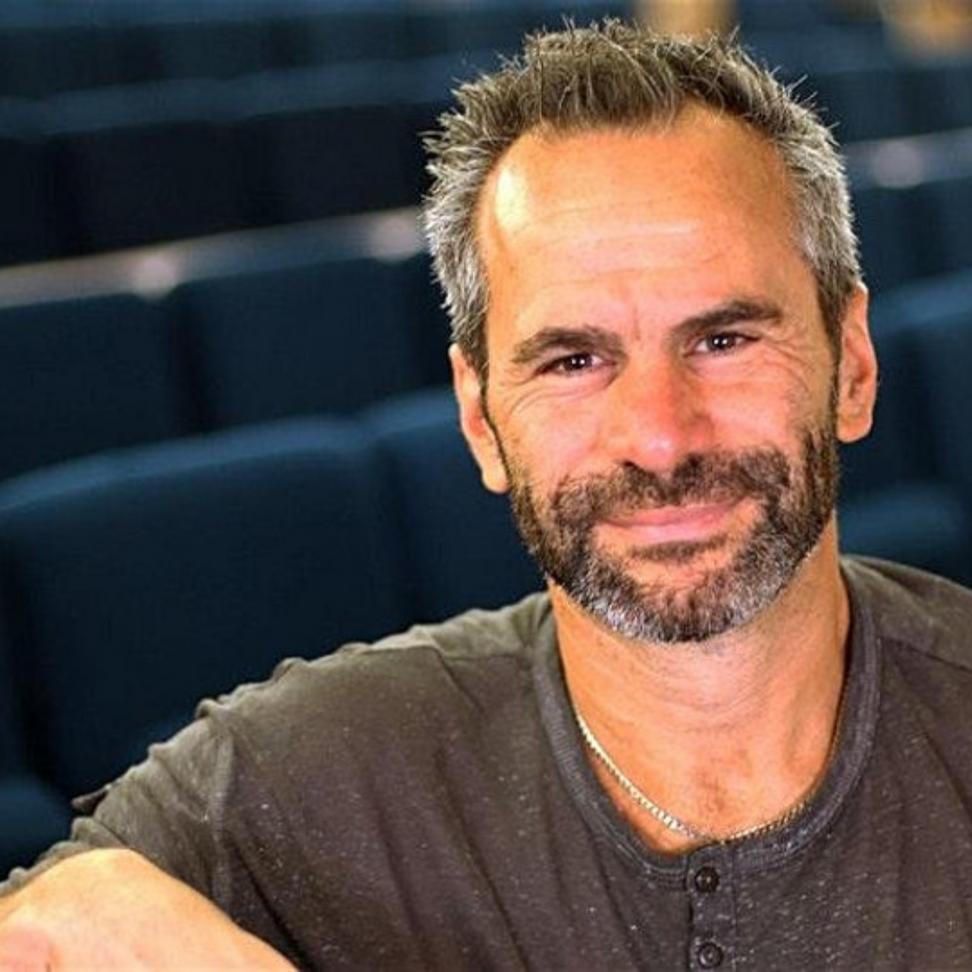 Mick Cooper Mick Cooper
Mick Cooper Mick Cooper

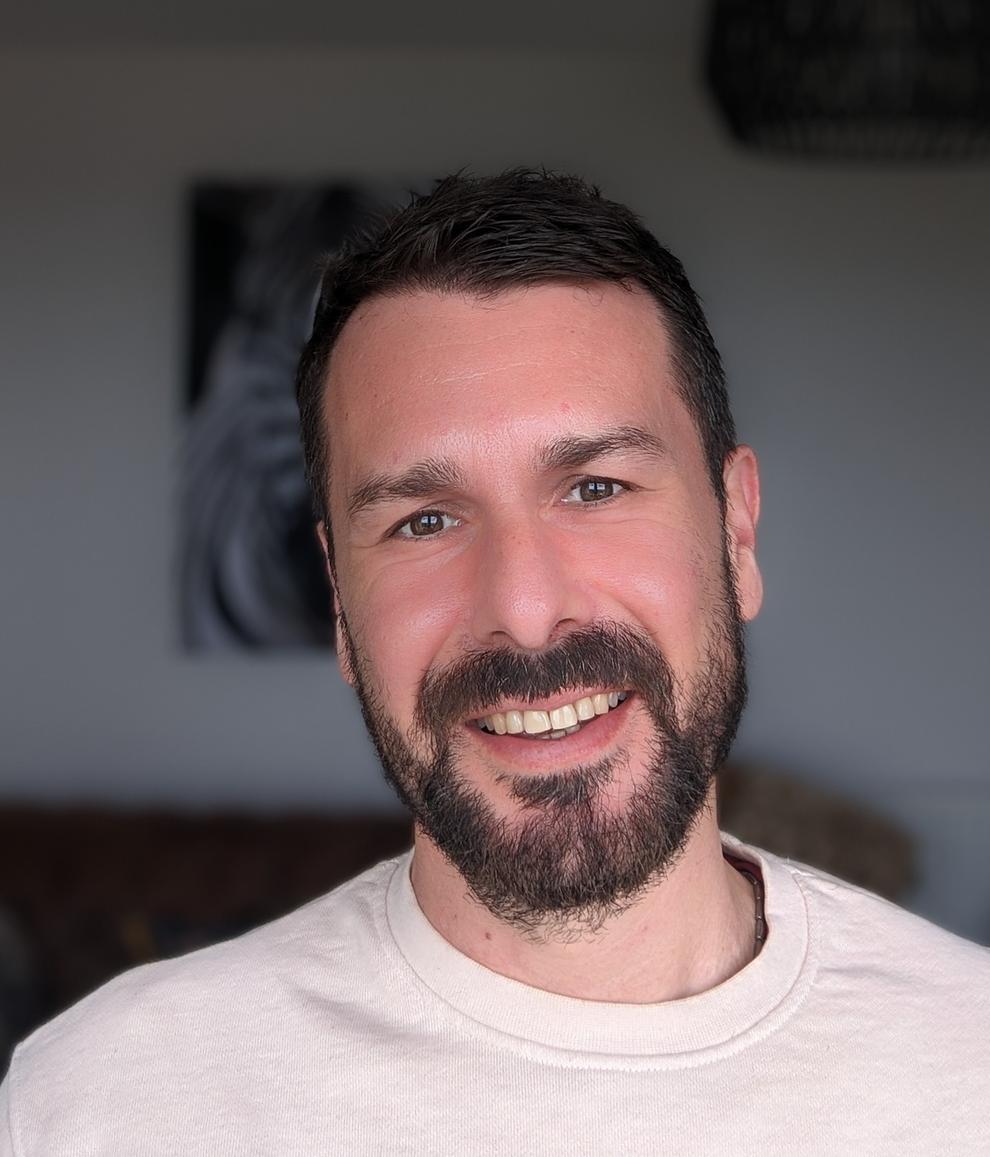
A major feature of the counselling and psychotherapy landscape over the past 20 years has been the increasing use of routine outcome and process measures as a means of providing client feedback on whether therapy is on track The opening section of this presentation will provide a brief overview of current research evidence around client and therapist experience of using these procedures, and the extent to which their utilisation contributes to enhanced client outcomes A general theme across this research literature is that feedback tools appear to be helpful in some contexts, and some cases, and not in others.


The second part of the presentation suggests that the helpfulness of feedback tools depends on how their purpose is understood by the client, the therapist, and the organisation/clinic within which therapy takes place. Client feedback functions in a distinctive manner within a pluralistic framework for practice, as a means of supporting the capacity of the client and therapist to work together, rather than as information that is primarily of value to the therapist. In addition, a pluralistic perspective encourages consideration of multiple ways in which the feedback process may be meaningful for client and therapist, beyond progress monitoring. Examples are provided of how these aspects of a pluralistic approach to feedback can operate in practice. A key aim of the presentation is to facilitate discussion: the closing section will focus on group discussion in which participants are invited to share their responses to what they have heard, ask questions, and collectively explore ways that research and training might enable a pluralistic approach to routine outcome measurement and feedback to be further developed

John McLeod is Visiting Professor of Counselling at the Institute for Integrative Counselling and Psychotherapy, Dublin, and Emeritus Professor, Abertay University. He has been closely involved in the development of pluralistic therapy, as well as publishing widely on a wide range of aspects of counselling and psychotherapy research and practice. He lives in Dundee, Scotland.
My name is David Sanmartino; originally from Spain, but Scotland is home now. My first degree was in Drama, and after working in the theatre for four years, I returned to the university to study psychology I have a clinical background in Health Psychology, CBT, and Forensic Psychology, but my values and working ethics align with humanistic theories. My main interest in the field of mental health is working with complex trauma from a multitheoretical and multi-disciplinary perspective. For this reason, I decided to return to the university and study for an MSc in Counselling pluralistic approach at Abertay University in Scotland. The depth of the relationship with clients, putting their needs and preferences first, and a collaborative working perspective have always been priorities to me.
Currently, I feel very privileged to be doing a PhD on exploring the use of Routine Outcome Measures in Counselling and Psychotherapy. This fully funded PhD is a collaborative project between York St John University (YSJU), the British Association for Counselling and Psychotherapy (BACP) and the United Kingdom Council for Psychotherapy (UKCP). This project is based on principles of Pluralism and Metamodernism, in which there is not a single truth or reality but many ways of doing and being that are equally valid. Pluralism focuses on respecting and promoting the uniqueness of human beings, which makes us richer collectively and places social justice as a core value




Additionally, I dedicate two days of the week to seeing some clients in private practice and facilitating personal development groups and counselling skills practice at Abertay University. Also, I collaborate with different organizations in Scotland to promote men’s mental health and helping to prevent suicide.

Background: Poverty is an increasing problem for today’s society and is a significant contributor to poor mental health. As well as a having a higher prevalence of mental health disorders than wealthier individuals, people in financial hardship tend to have poorer access to counselling and worse therapeutic outcomes. Previous studies have identified various power imbalances, structural barriers and client/therapist biases which perpetuate these inequalities. However, there has been relatively little research on how to improve outcomes for this client group, particularly here in the UK. This paper (based on work in the first year of a PhD) presents initial research on how pluralism, with its focus on collaboration and breaking down power imbalances, could be a suitable framework for working with this client group

Practice focus: This work seeks to represent the voice and opinion of clients who have lived in financial hardship and also sought help for mental health issues through counselling. It aims to find out what worked, what did not work, and what could work better by establishing their preferences and inviting collaboration.
Methods: The research methodology follows a grounded theory approach, starting with focus groups. Participants are being recruited from clients of charities working with poverty/hardship
Results: Preliminary - this paper will provide details of the existing knowledge-base, outline the research plans, and provide an overview of progress Implications for research and practice: The aim is to build a theory of best practice for this client group which can be expanded through further research and disseminated in counsellor training



Elise Ferguson is a first year PhD student at Abertay university - her research topic is ‘Counselling clients living in poverty/financial hardship’ with a particular focus on the client voice Her aim is to situate the research in a local (I.e. Scottish/UK) context, with a view to developing best practice for this client group The research will be mainly qualitative in nature and the first study is a series of focus groups, partnering with charities who work with clients experiencing financial hardship.
Elise's reasons for focusing on this client group come from a long-standing interest in social justice, and in particular her work with the Stirling food bank where she has been involved as a volunteer and trustee since 2017. She is also a BACP registered counsellor (having graduated in 2022 in the Pluralistic Counselling MSc at Abertay) and has a small counselling practice working mainly with clients of local third sector organisations
Elise Ferguson Elise Ferguson


In this workshop, the facilitator will provide an overview of core stances and principles for supervision under a pluralistic framework that also include intercultural and anti-hegemonic guidelines for supervision in a brief lecture. They will also share challenges from their supervision experiences of interns in a college counseling center Facilitator will model personal sharing and elaboration of a collaborative relationship with the supervisee emphasizing recognition of systems and nuances regarding supervision goal settings. Attendees will be exposed to group discussions of challenges in pluralistic supervision and will utilize skills modeled by facilitator to generate possible alternatives to navigate these. Application of personal sharing, goal construction, dialectical relational skills, and mutuality will be engaged in group discussion regarding common challenges in initiating a supervisory relationship
Attendees will navigate how to work with differences between supervisor and supervisee and how this might affect clients through a discussion on how to engage in critical feedback attending to power imbalances and contextual elements within supervision and service delivery.



José Francisco Avilés-Acosta, PsyD (elle/they) is a bilingual, non-binary, Boricua, and Clinical Psychologist licensed in the state of Ohio, U.S.A. They are the Diversity, Equity, and Inclusion Clinical Services Coordinator and a Staff Psychologist for the University of Cincinnati’s Counseling and Psychological Services. They have spearheaded interdisciplinary training programs focused on cultural responsiveness and the integration of social justice in therapies with marginalized identities They have presented on working with intercultural non-monogamies and immigrants from an ecosystemic and multidimensional focus. They live in Cincinnati with their nesting partner and two cats.

How can the Pluralistic approach be helpful in counselling people who have Learning/ Intellectual Disabilities?
The 2014 report ‘Feeling Down’ published by the Foundation for People with Learning Disabilities acknowledged that people who have learning disabilities have an increased risk of developing poor mental health due to social, economic, psychological, and emotional, as well as some biomedical factors.


When completing my training in Pluralistic Counselling at Abertay, it became apparent to me that a Pluralistic approach may be well placed in meeting the diverse and individual therapeutic needs of this population of people.
The initial stages of my PhD project, which is looking to co-create a Pluralistic Framework for working with this group, has been informed by discussions with partners at ENABLE Scotland (a national member-led charity advocating for the rights of people who have a Learning Disability) and facilitated by Tayside Centre for Counselling, Abertay’s Counselling Research Centre and Sally Lumsdaine, TCC Manager. This workshop builds on these discussions.
Aims of the workshop
Encourage consideration of the needs and barriers experienced by this client group when accessing therapy
Consider how Pluralistic principles and practice have a role in creating a meaningful, effective therapy experience for people who have a Learning/ Intellectual Disability
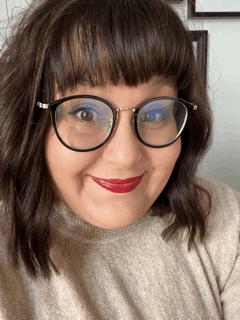

Encourage reflection on inclusivity of your own practice in terms of engaging with this client group.
Learning Outcomes of the workshop
Participants will have an increased understanding of the barriers to therapy experienced by people who have a Learning/Intellectual disability
Participants will have the tools to consider and evaluate their own practice in terms of accessibility for this client group.
Participants will be able to critically evaluate the role that Pluralistic principles and practice have in creating a meaningful, effective counselling experience for this client group.
Charlotte Scott Charlotte ScottCharlotte Scott is a PhD student at Abertay University and a pluralistically trained counsellor, currently working in private practice.


Charlotte’s research is grounded in a career working in various capacities in the field of Learning Disability support and advocacy. Co-created with a steering group of people with lived experience, her research aims to develop a therapeutic framework for counselling people who have Learning/ Intellectual Disabilities



Objectives: To date, there has been no research exploring the use of a pluralistic framework when working with neurodivergent (ND) clients. This research addresses the gap between theory and practice and explores therapist perspectives and experiences using the pluralistic framework as an ND therapist and/or when working with ND clients.


Methods: Eight pluralistic therapists were interviewed using semi-structured interviews. This study employed interpretative phenomenological analysis (IPA) to capture lived experiences and sensemaking of the participants The therapists had a range of experiences some were ND themselves and working with ND clients.

Results: Six key themes emerged from the results: the importance of language; client strengths and cultural resources; collaboration and shared decision-making; demystifying therapy; learning events within therapy; and flexibility These results were synthesised into two overarching themes: ND justice and the pluralistic model as a supportive framework for ND affirmative practice. The approaches within the participants' therapeutic interactions modelled a neurodiversity justice approach There was a belief that the pluralistic framework could have been designed for neurological difference.
There was a deep respect for client experience along with hearing the client, giving voice, and respecting choice embedded in the approach. The participants were able to use the model to facilitate client autonomy and normalise them being part of their own processes both in therapy and in life
Conclusion: This study provides insights into the experience of ND, which can be used to improve practice and increase knowledge in the field

Danielle Mills is a pluralistic therapist and has a number of specialist areas including working with neurodivergent clients, eating difficulties, bereavement, and children and young people. Danielle runs a successful nature-based and equine facilitated therapy Community Interest Company in Derby in England, supervising a number of staff.
Danielle Mills initially trained as an integrative therapist and went on to train in Equine-Facilitated Psychotherapy and Learning (EFP/L) with LEAP Equine. Danielle has developed her training through The HERD Institute, where she is now a faculty member and delivers the UK training for EFP/L Danielle has recently completed an MSc in pluralistic counselling and psychotherapy through IICP; she incorporates this approach into her equine work. Danielle has a PhD in nursing studies from the University of Nottingham and works as an associate academic for both the University of Derby and the Institute of Integrative Counselling and Psychotherapy
Her interests lean towards research and education in neurodiversity as well as nature based and animal assisted therapeutic approaches – Danielle is also autistic and has ADHD

Doctor of Philosophy (PhD) in Nursing Studies; Master of Sciences (MSc) in Pluralistic Counselling and Psychotherapy; Postgraduate Certificate (PGCert) in Clinical Supervision; Diploma in Therapeutic Counselling; Diploma in Equine Facilitated Psychotherapy and Learning; Bachelor of Sciences (BSc)(Hons) in Counselling and Therapeutic Studies; Fellow of the Higher Education Academy (FHEA); Registered Accredited Member of the British Association of Counselling and Psychotherapy (MBACP Accred).










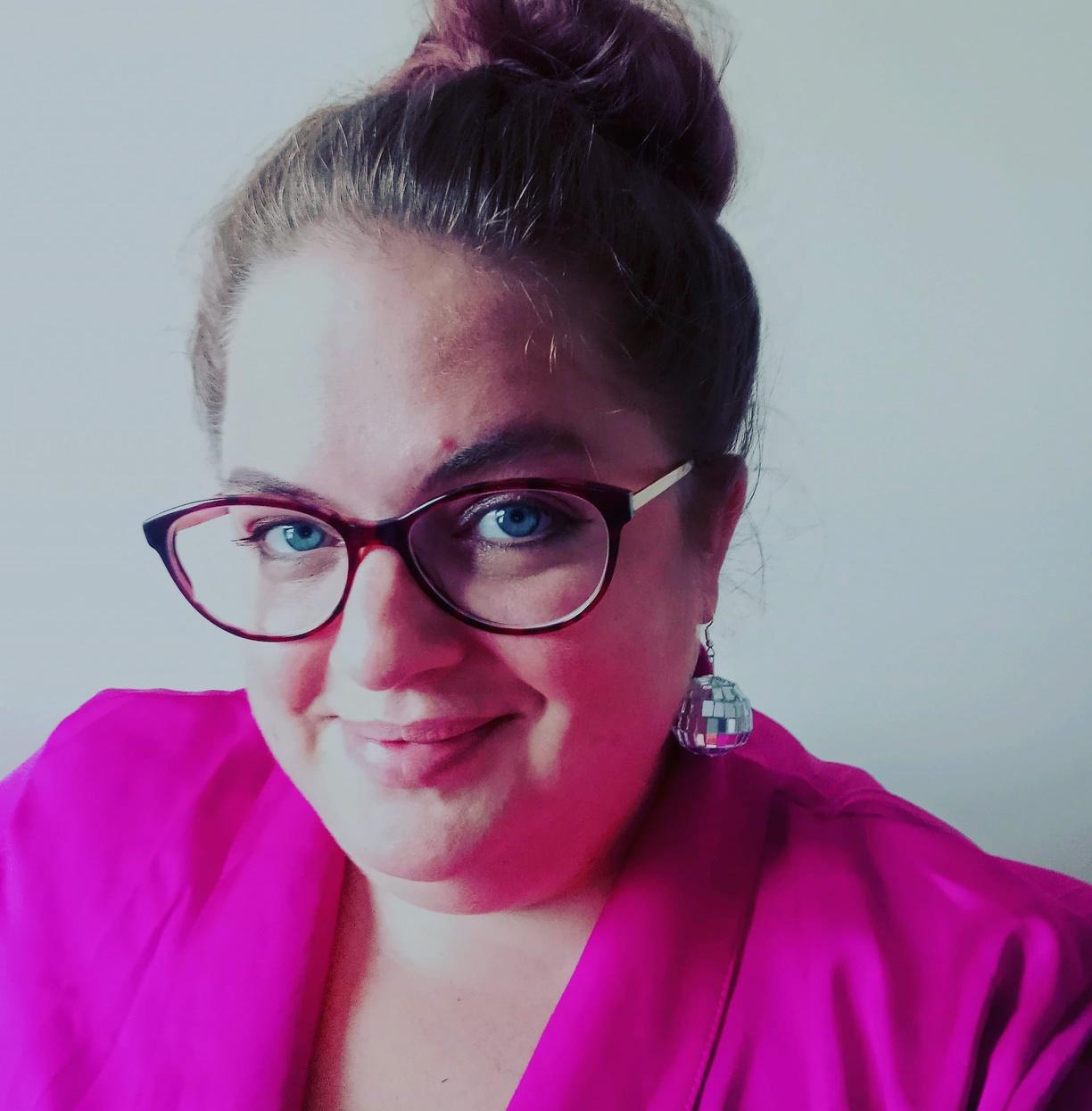
Many people face discrimination and stigma based on their body size and appearance Eating disorders are on the rise and treatment services are struggling to accommodate the demand, and many people don’t fit the diagnostic criteria, leaving those struggling with eating and body image to seek out counsellors elsewhere The inherent nature of weight bias and fatphobia in our society means that this is likely to be a dominant factor in the counselling room, potentially causing harm by exacerbating eating and body distress. In this workshop, I’ll explore the impact of weight stigma and fatphobia, eating distress, intersecting with other forms of discrimination such as classism and ableism.
Participants will have an opportunity to reflect on their own relationship with food and their bodies, and consider their own implicit biases around weight. The aim of this workshop is to help practitioners consider the impact of weight discrimination and the harm caused by fatphobia, in order to work in an inclusive, collaborative and Pluralistic way, to help support clients and reduce the risk of further harm in the counselling room.


Mel Ciavucco is a writer, trainer and group facilitator, and has just qualified as an Integrative Pluralistic counsellor Mel’s passions and experiences lie in eating disorders, body image and weight stigma, as well as in her group work with perpetrators of domestic abuse. She was published in Therapy Today with an article about fatphobia (June 2021 edition) and she writes about disordered eating, weight stigma, class, and more on her website: www melciavucco com
You can find Mel on Twitter and Instagram at: @MelCiavucco


And on Facebook: @MelCiavuccoWriter





Pluralistic therapy can be understood as a form of practice that does not involve the application of a pre-determined set of ideas and activities. Instead, the therapist and client work together to draw on their knowledge and life experience to co-produce or co-design a therapy process that is most helpful for that client in that specific context, in relation to accomplishing their therapy goals. The aim of the present paper is to explore the relevance of the concept of ‘making’ as a way of making sense of the distinctiveness of this kind of approach to practice
Following a brief account of the limitations of a conceptualisation of therapy as an intervention based on implementation of a standardised protocol, the authors will summarise critical psychological and anthropological perspectives on making as a general human accomplishment (explained in more detail in McLeod, J., & Sundet, R. (2022) Psychotherapy as making. Frontiers in Psychology, 13, 1048665 – open access journal) Examples will be provided of what makingtogether looks like in therapy practice, and implications for therapy training will be explored. A key aim of the presentation is to facilitate discussion: the closing section will focus on group discussion in which participants are invited to share their responses to what they have heard, and ask questions.


John McLeod is Visiting Professor of Counselling at the Institute for Integrative Counselling and Psychotherapy, Dublin, and Emeritus Professor, Abertay University. He has been closely involved in the development of pluralistic therapy, as well as publishing widely on a wide range of aspects of counselling and psychotherapy research and practice He lives in Dundee, Scotland

Rolf Sundet is specialist in clinical psychology and professor emeritus at the University College of Southeast Norway, Drammen, Norway He is also a freelance supervisor and consultant He has published in both English and Scandinavian books and journals. A special interest is in perspectives on returning to the real as a necessary focus in therapeutic practices and conceptualisations







For many, supervision is the entry point to the mental health professions and the introduction on how to contextually apply skills and work through experiences that arise in both clinical work and supervisory experiences. However, training programs and approaches to supervision emphasize the development of competencies that are in favor of the systems where the supervisor and trainees are located. In this sense, many supervision experiences attempt to offer universal approaches to training that are disconnected from daily living experiences and may not hold a pluralistic integration into the training experience.
This paper aims to further expand on the practice of supervision with a Pluralistic Approach as an act of resistance to training experiences offered by training programs. As such, the author will emphasize on ways to humanize the supervisory experiences, navigate the balancing of power in the relationship, and centering on a non-expert stance consistent with intercultural approaches that advance mutuality, collaboration, and the integration of lived experience. Lastly, a strong foundation of theory with interaction skills will be highlighted and how these can manifest in different systems.
José Francisco Avilés-Acosta, PsyD (elle/they) is a bilingual, non-binary, Boricua, and Clinical Psychologist licensed in the state of Ohio, U.S.A. They are the Diversity, Equity, and Inclusion Clinical Services Coordinator and a Staff Psychologist for the University of Cincinnati’s Counseling and Psychological Services They have spearheaded interdisciplinary training programs focused on cultural responsiveness and the integration of social justice in therapies with marginalized identities. They have presented on working with intercultural non-monogamies and immigrants from an ecosystemic and multidimensional focus. They live in Cincinnati with their nesting partner and two cats.


This story is about 24 sessions of trauma informed therapy using a systemic/ narrative lens. This presentation focuses on work done with Ariel.

I share actual session notes along with Ariel’s and my reflections on the work as we were coming to the end of the allocated 24 session. In addition, Ariel writes about how having the session notes and working online made her safe Ariel came to therapy due to experiencing CSA She felt a need to get control of her life as it seemed to be getting more and more difficult.
Due to lockdown, we never actually met face to face and all sessions were conducted via video calls. We worked in a collaborative way, which included sharing sessions notes and writing reflections In the presentation I share some of these notes and reflections These show how and at what session Ariel took steps to take control of her life and move away from the effects of traumatic experiences. Ariel’s voice and reflections are a critical part of this presentation, she shares how working in this way allowed her to speak up and change her view of self
Since completing therapy Ariel has expanded her support team to include people not just cats. She has been co-author of two articles in therapy journals (to be published in May & August 2023) I hope this presentation will help clinicians to be curious about Narrative Therapy, writing session notes in a specific way that notices agency and offering to give clients session notes.
Keith Oulton MBACP (Accred) is a child adult and family therapist and supervisor who is registered and accredited with UKCP and BACP. He also holds Chartered Psychologist status in the Republic of Ireland and worked for over 30 years in the Irish health system. He moved to the UK in 2018, and runs a small private therapy and supervision practice in Cumbria and works as a therapist for a local charity. He is currently developing the story featured in this article into a book.
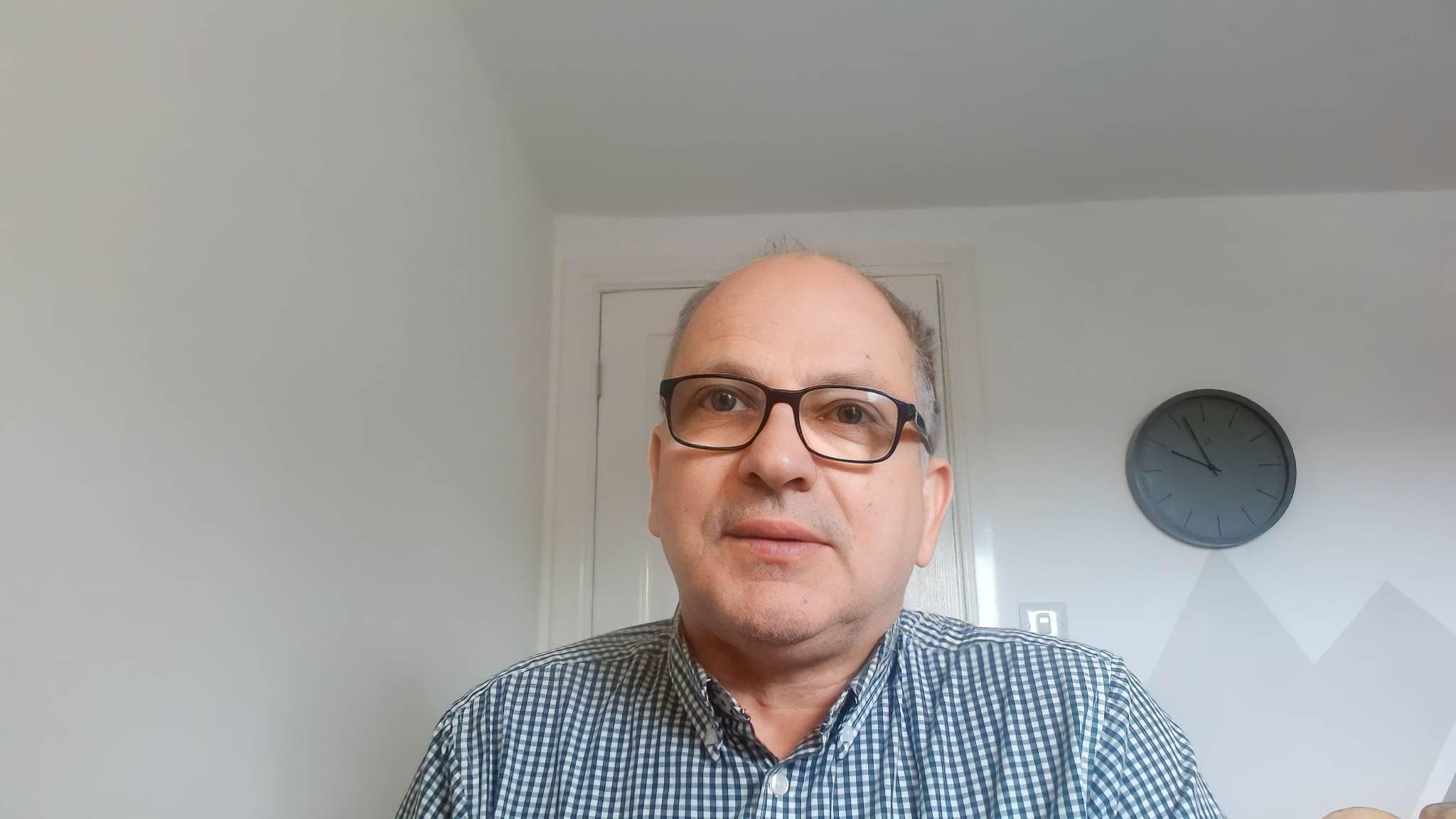
Ariel Sanders is a pseudonym for a client who has given permission for this work to be shared
She says: ‘For years, I battled with myself and my history. Therapy taught me new skills and to wear new lenses I have thought hard about sharing my identity and decided to use the name Ariel as my immediate family members are not aware of what happened. I chose the name Ariel (from The Little Mermaid) as she felt different from the others – exactly how I felt as a child! This article/presentation is written with my consent and support It’s a constant positive reminder of where I've come from mentally and emotionally and where I am now.’


Neurodiversity describes the diversity and variation in ways of experiencing and being in the world. Humans are massively varied beings, so why does counselling so often look and feel so uniform? What might counselling look and feel like, if it were to fully embrace our diversity?
Sonny will explore some of the ways in which counselling might welcome and be changed by different ways of being, drawing from their own experiences as an autistic person accessing therapy, their work and research within neurodivergent, disabled, and other minority communities, as well as their work as a counsellor.
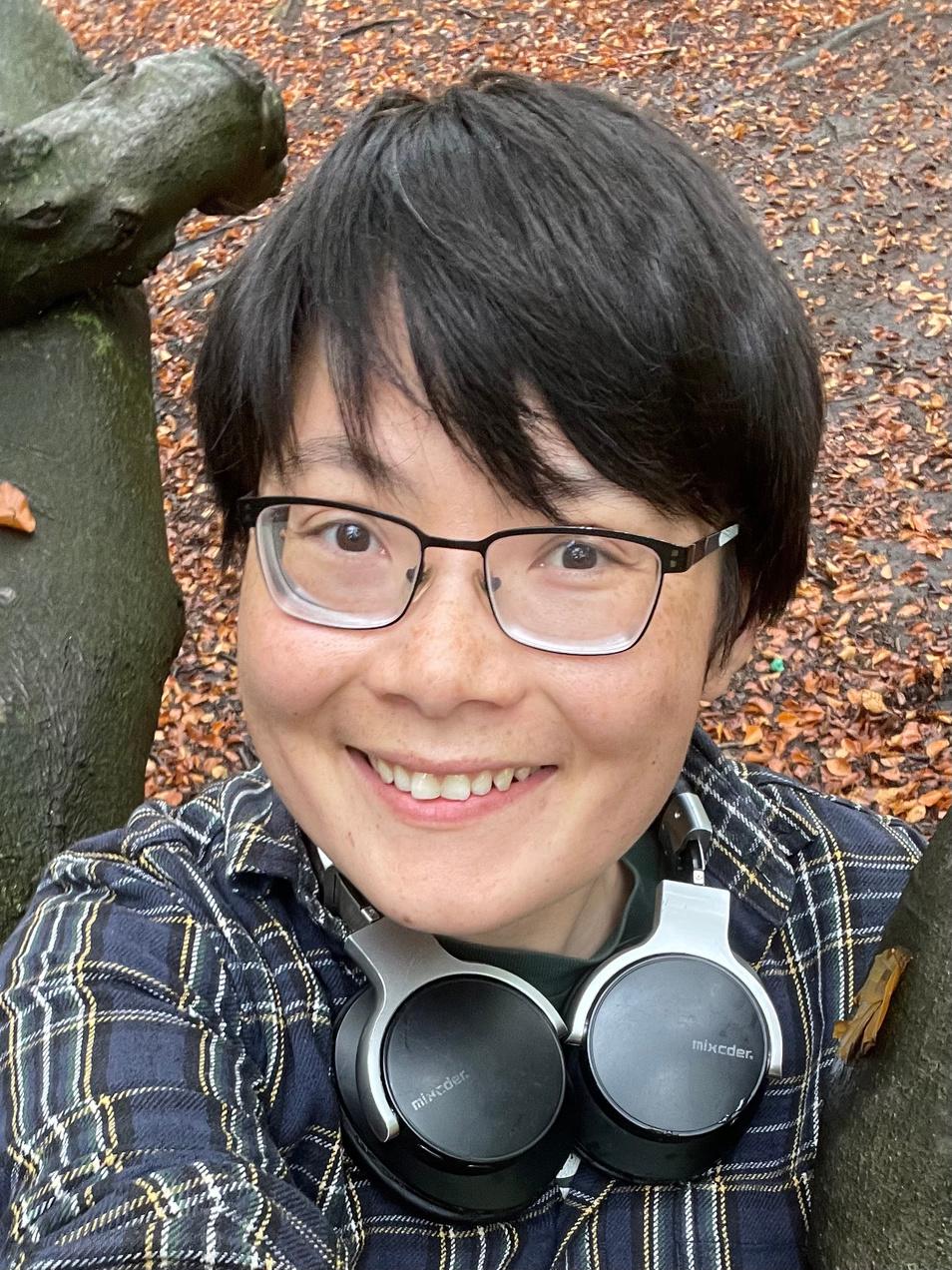
Sonny Hallett is a counsellor, trainer, and co-founder of AMASE (Autistic Mutual Aid Society Edinburgh). They have co-authored research on autism and mental health, experiences of counselling, autistic community and peer support, and work predominantly with neurodivergent and queer clients They are also neurodivergent, trans and mixed race
They are particularly interested in how counselling can be made to better suit divergent needs, how to help counsellors expand their sensitivity toward minority experiences and perspectives, and how this greater sensitivity and accessibility can enrich counselling more generally.

They also have a keen interest in nature and ecotherapy; the ways in which a relationship with the land, and the environment, can connect with our sense of ourselves.
They work in private practice in Edinburgh
Sonny Hallett Sonny Hallett Fleur Fleur Farish-Edwards Farish-Edwards
Fleur Fleur Farish-Edwards Farish-Edwards
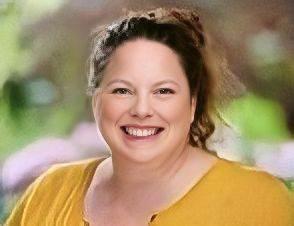
Creative responding is at the heart of pluralistic practice – the work with each client is unique, and at its best happens in response to that client, with that therapist at that time. This is where the magic lies – in the creative therapeutic process.

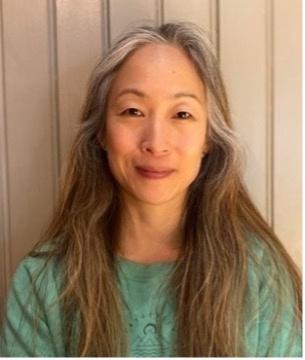
But what does creative responding look like in practice?
Creativity involves creating something unique Creative responding might involve creative materials, but it might not. It involves trying new things, not knowing, and learning by doing as we co-create an individualised therapy with each client. It can involve risk. But in today’s climate of regulation and competences therapists can feel restricted and unsure in their practice

This session will be informal and will invite open discussion on the potential implications of creative responding for pluralistic practice. The panel will share some of our practice experiences and will invite participants to discuss and explore questions such as ‘what does creative responding look like in practice’, ‘how can I be more creative’, and ‘what gets in the way of creative responding’.

Ani de la Prida is a psychotherapist and creative arts counsellor who brings a creative, personcentred, pluralistic approach to her work She is passionate about creative methods in therapy and has 20 years’ experience working with groups, adults, children, and young people in a wide range of settings. Ani founded the Association for Person Centred Creative Arts (APCCA) where she is course director Ani is a senior lecturer and has taught at several universities including Roehampton and the University of East London, where she did her masters research on the use of digital media in therapy She is author of various publications including What Works in Counselling and Psychotherapy Relationships (BACP, 2020), and co-author of The Pluralistic Therapy Primer (2021) PCCS Books.




Annie Garrigan is a Pluralistic Counsellor working at UHI Perth and with ESA Scotland. As an advocate of anti-oppressive practice, she has a keen interest on issues of race and intersectionality Through recent exploration, she regained her passion for painting which was transformative and empowering. She now brings the practice of working therapeutically and collaboratively with creative arts to her support groups and clients.
Fleur Farish-Edwards is an experienced counsellor and supervisor, and along with her wife, facilitates creative workshops as “Two Birds Therapy” Fleur is also a university lecturer in counselling and is currently working on a professional doctorate, researching the life-long impact of adoption on adult adoptees. Fleur works creatively and collaboratively with clients, supervisees and students, and holds person-centred and pluralistic practice at the heart of everything she does.



An emerging priority within counselling and psychotherapy theory, practice and research has been a growing recognition that therapy needs to do more to play its part in addressing critical social issues such as racism/colonialism, the climate crisis, and gender violence On the whole, mainstream therapy approaches tend to conceptualise the individual in terms of psychological processes, and evaluate outcomes in terms of symptom change. By contrast, at least in principle, a pluralistic framework for practice offers a space in which socio-political concerns can be explored, and engagement in political action and participation can be considered as a possible outcome. However, some practitioners lack confidence around knowing how best to respond to socio-political issues presented by clients The first part of this presentation offers an overview of research into strategies used by counsellors and psychotherapists around engaging with socio-political goals and tasks.

The second part of the presentation looks at how these strategies can be incorporated into pluralistic practice, for example in relation to preparation for therapy, agreeing goals, collaborative case formulation, and activating cultural resources A key aim of the presentation is to facilitate discussion: the closing section will focus on group discussion in which participants are invited to share their responses to what they have heard, ask questions, and collectively explore ways that research and training might enable a pluralistic approach to socio-political aspects of counselling and psychotherapy to be further developed.


John McLeod is Visiting Professor of Counselling at the Institute for Integrative Counselling and Psychotherapy, Dublin, and Emeritus Professor, Abertay University. He has been closely involved in the development of pluralistic therapy, as well as publishing widely on a wide range of aspects of counselling and psychotherapy research and practice He lives in Dundee, Scotland




Christine Kupfer is a lecturer in Counselling & Psychotherapy at the University of Abertay, Scotland, and works as a pluralistic therapist (MBACP). Her background and degrees (Masters, PhD) are in counselling, social and medical anthropology, education sciences, and psychology Her research projects include a study on children’s mental health in India, a citizen science project on depression, ethnographic work with Ayurveda patients to understand their conceptualisations of health and healing, research on Rabindranath Tagore, and an ongoing project on the “Dark Side of Meditation”. She has published a monograph and many articles and is currently coauthoring a book titled Pluralistic Therapy: 100 Key Points and Techniques.

This workshop is designed to offer attendees some insights into how to embrace pluralism as part of clinical practice in working with international client populations.

Reflections come from a practitioner who has worked in mental health settings in two countries, within multiple clinical settings with clients who hold foreign national status.

Attendees will be offered some theoretical perspective on the challenges faced by clients from other countries, and how to navigate those internally as a clinician.

Shubhara is an experienced mental health clinician who has worked diverse client populations in diverse clinical settings in the United States and the United Kingdom for over twelve years. Trained as a clinical psychologist, he works with a variety of clinical concerns and currently serves as a staff therapist at Counseling and Psychological Services at Carnegie Mellon University in Pittsburgh. Relevant training experiences have included training experience addressing dimensions of religion and spirituality in psychotherapy, clinical work with international students, and with refugee populations. He attended the University of Manchester in the United Kingdom and the Chicago School of Professional Psychology in the United States.
Shubhara has lived experience as a BIPOC and BAME person in the US and UK respectively, and has previously co-facilitated and led workshops and presentations on matters of diversity, equity, inclusion, belonging, and pluralism at local and national conferences Shubhara is passionate about synthesizing experience from trauma informed care and principles of pluralism to best serve his clients, and is committed to exploring how pluralism intersects with mental health awareness in society at the wider level
 Shubhara Bhattacharjee Shubhara Bhattacharjee
Shubhara Bhattacharjee Shubhara Bhattacharjee



